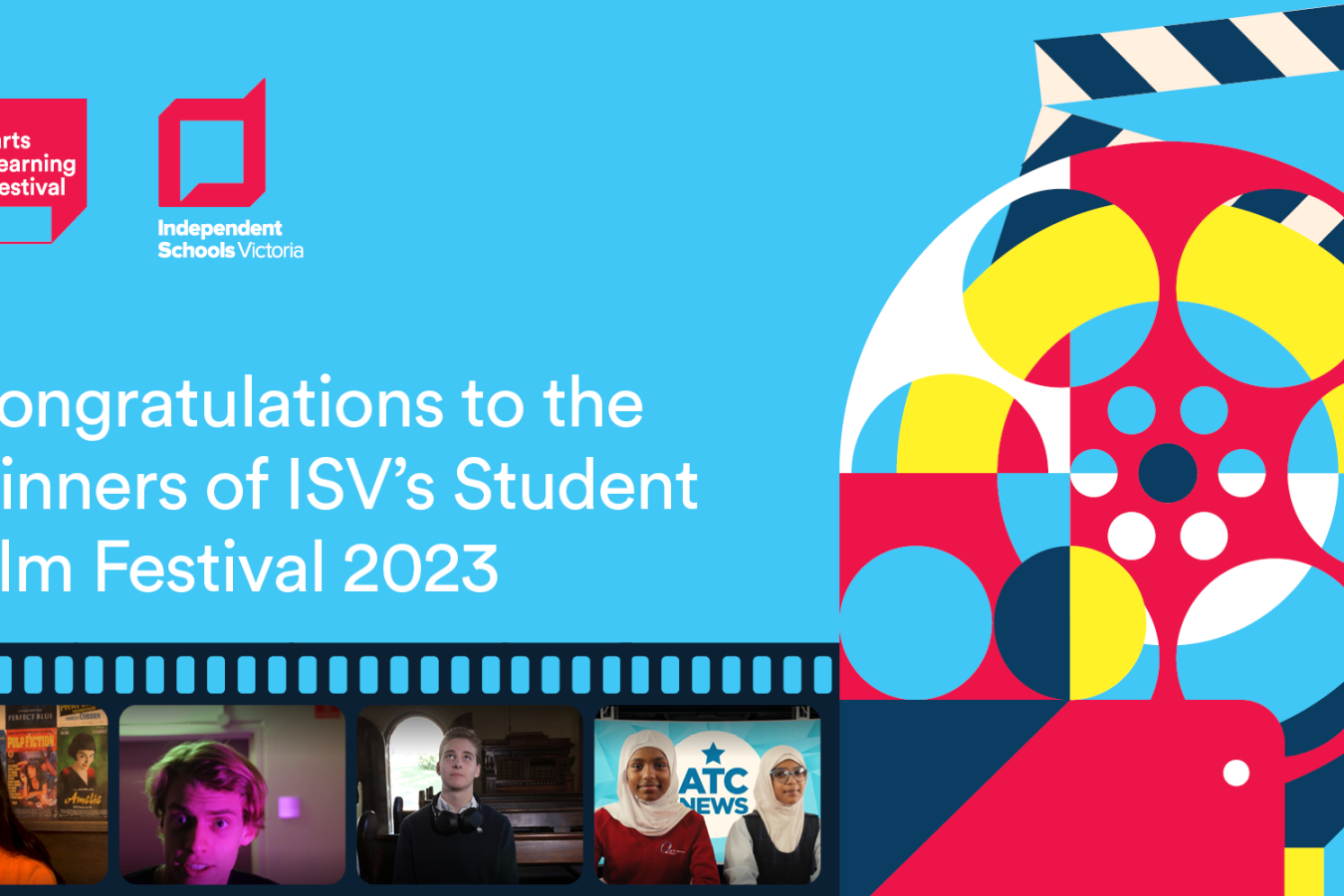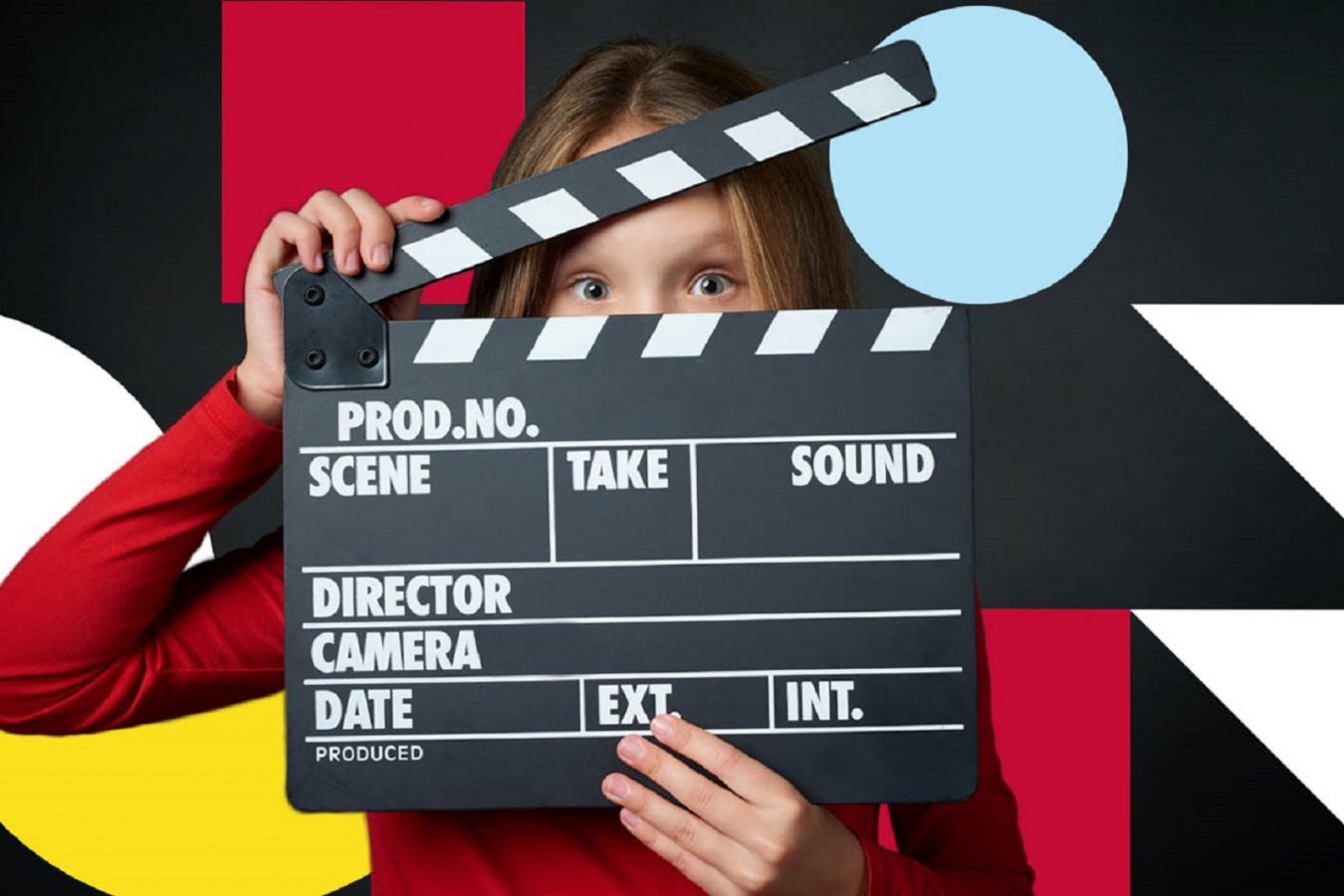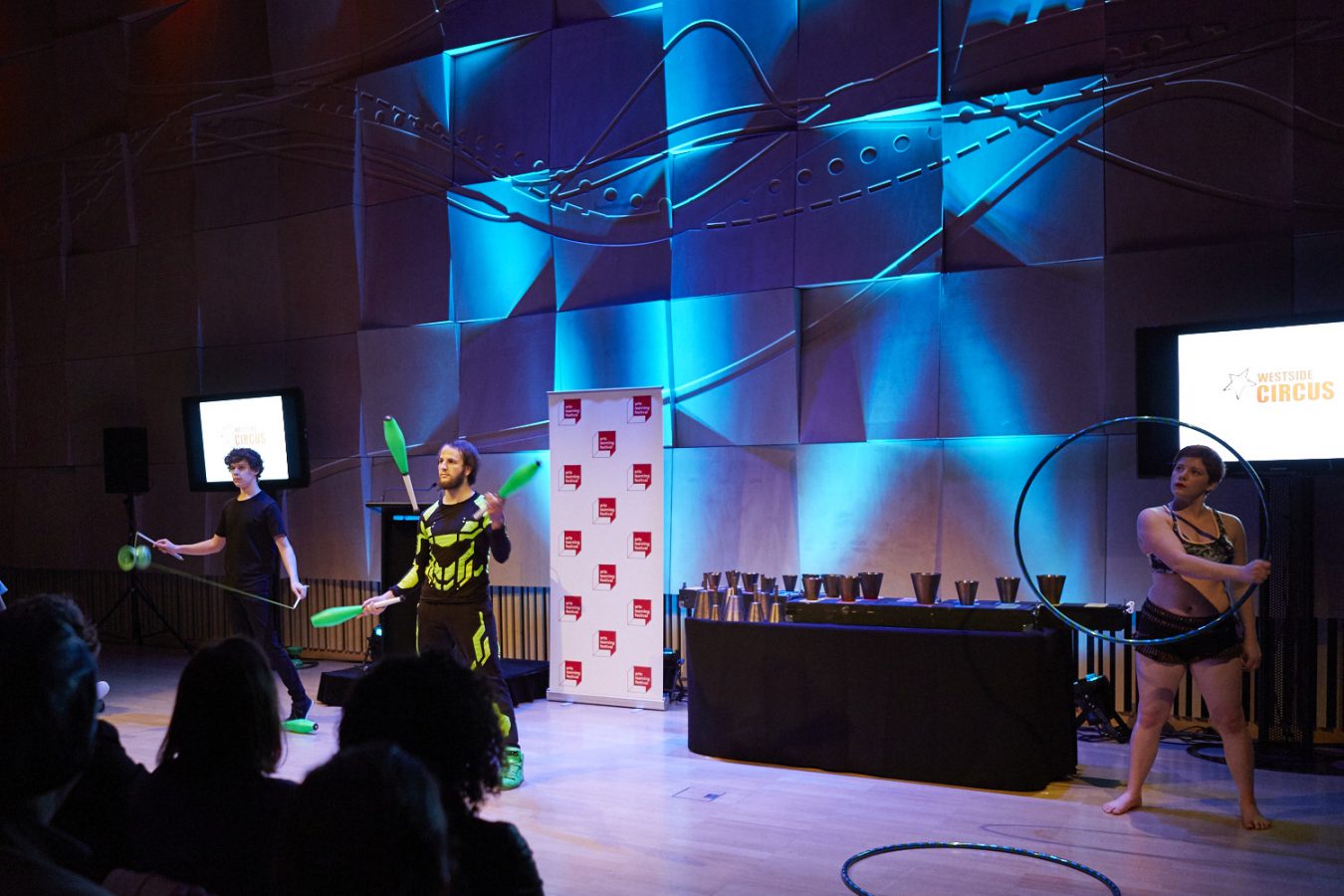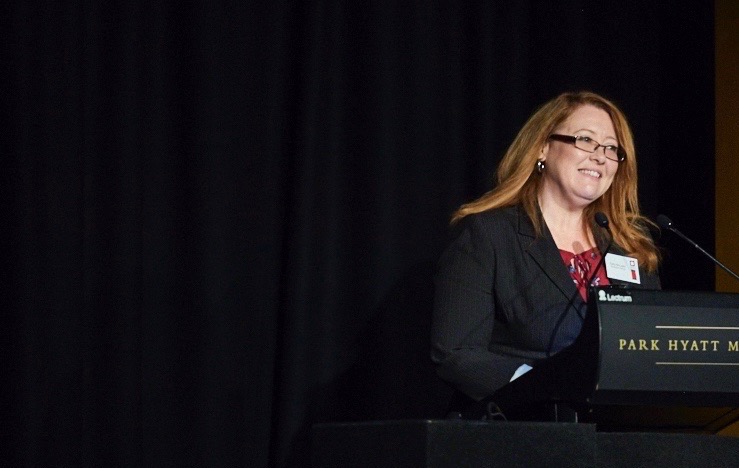
Sally McLean created the amazing Speaking Daggers short film for our recent Arts Learning Festival. She gave this inspiring address to the Annual General Meeting of Independent Schools Victoria.
When I was asked to speak tonight, I will confess I wasn’t sure what to talk about. Not for a lack of ideas, but because I had too many. I could talk to you about Shakespeare, as that’s my current obsession, well, permanent obsession, truth be told, but the more I thought about that subject, the more it lead me to a broader topic, and that’s the arts in general. I do not have a degree in arts education, nor am I an academic studying it. But I was once a creative kid, as we all were, and a student, which I hope we all still are, and so I will be partly talking to you from that perspective tonight.
I will also be talking to you from the perspective of an artist who has over 25 years experience in the field both here and in the UK and has seen first hand how the arts positively impacts on our young people in every field of endeavour through their school years and beyond. It gives them a chance to be inspired and challenged and to grow – as human beings – regardless of their choice of career beyond school. And as you are all in the business of producing our next leaders, business professionals, politicians, journalists, entrepreneurs, doctors and all the various roles our society needs to function, that’s what I would like to talk about tonight.
The title of my speech comes from an overheard conversation, unsurprisingly, as we’re in Melbourne, in a café. I was minding my own business drinking my latte when a young man, in a suit, late twenties, took a call on his mobile at the next table. As seems to be the case more often than not these days, he proceeded to have a conversation as if nobody else could hear him, despite the fact all of us nearby clearly could and began speaking to someone who was obviously a friend. Their conversation centered on a woman. This I gleaned from the statement: ‘Well mate, that’s artists for you. She’s crazy.’ The conversation then continued with some interesting dating advice in regards to dating an artist and then the statement: ‘Yeah well mate, really…the arts – who needs it? Tell her to get a real job.’
This left me, as you can imagine, a little hot under the collar. But what was really interesting was the next topic he turned to – the television series Game of Thrones. From this new, one-sided conversation direction I learned that the character of Little Finger bore a striking resemblance in look and personality to this young guy’s boss and this young guy had been delighted to see Little Finger ‘get his’ in a recent episode of the series. Apparently it made our young suit feel so much better to see this character that reminded him of his boss get bitten by karma for his misdeeds.
Now, some of you will be well ahead of me here – but what was the irony of this situation?
He had answered his own, grammatically incorrect, question – who needed the arts? He did. Through a television show written by writers, directed by directors, acted by actors, produced by producers – all artists – he had found a catharsis, a release valve for the pressure he was feeling around his boss (who, by the way, must have been pretty nefarious if he was like Little Finger in any way, just saying).
The arts had given him a glimpse of a potential future for this slippery character of a boss, that gave him some comfort and potentially meant that he would deal with that relationship in a slightly different, hopefully more healthy way than before. That is one power of the arts in everyday life.
The sad thing for me was that he had not made the correlation between Game of Thrones and the arts. He had not realised that they were one and the same. And this disconnect is what we must fix. Without the arts, there is no Game of Thrones. No Marvel movies. No documentaries. No art galleries. No ballet. No comedy clubs. No culture. No release valve. And that ranges from sad to dangerous. The arts provide a release, a catharsis and an escape. They make us better as a society.
Winston Churchill stated in 1938 that: ‘The arts are essential to any complete national life. The State owes it to itself to sustain and encourage them…Ill fares the race which fails to salute the arts with the reverence and delight which are their due.’
Participating in the arts teaches teamwork and collaboration, the ability to take constructive criticism, the ability to envision, provide scope for imagination, actively promote confidence, provoke empathy and compassion and provide a fertile ground for that buzzword we are hearing a lot of in recent times – ‘innovation’. And that’s just the highlights. A child doesn’t need to want to be an actor, painter, musician or filmmaker to benefit from arts learning – it will benefit them just because they are human – and creativity, the need to create, is hard-wired into our very beings.
We are all creative. You, me, everyone. Problem solving is a form of creativity. Being a good leader requires creativity. Effective teaching needs creativity. Who here used to play dress–ups as a kid? Who here used to make up their own stories as a kid to share with parents and friends? Put on a play? Play pirates? Princesses? Who here had an imaginary friend? You are all creative. You are all intrinsically creative. And so are your students.
Sir Ken Robinson, whom many of you will be aware of, states it simply and effectively when he says: ‘Creativity is as important now in education as literacy and we should treat it with the same status.’
He also says: ‘Imagination is the foundation of everything that is uniquely and distinctively human. It is the basis of language, the arts, the sciences, systems of philosophy, and the all the vast intricacies of human culture.’
So, our job as artists, as teachers, as those who have influence over the next generations coming through, is to foster and nurture that creativity. To encourage it.
If I was going through the education system in Victoria as a kid now, I would likely be diagnosed as ADHD [attention deficit hyperactivity disorder]. I was unfocused, bored, fidgeted, daydreamed out the window, skipped classes, played up. My report card routinely said: ‘Bright, but needs to concentrate and could do so much better.’ I was probably every teacher’s worst nightmare and biggest frustration. Luckily, instead of medication, my mother involved me in the arts. It helped that she ran a performing arts group for the girl guide association that I could join.
And I credit that extra-curricular activity, from the age of 10 to 17, for getting me through grades five and six and high school. It also helped with my depression as a teen. Is the arts a cure-all for those kids who are problematic in school? Of course not. But it can help. And it’s worth trying.
Bullying is something that kids do. As much as we wish they wouldn’t. I suffered bullying in school – most of my creative friends did as well. That’s because what we did, how we were, was seen as different. Not normal. Weird. Strange.
If the arts are front and centre with all the other subjects on the curriculum, you remove a reason for kids to be singled out and mocked for their differences. Drama in particular can help with the bullying problem.
Firstly, it gives kids confidence to speak up. Secondly, it gives kids a chance to stand in another’s shoes. Participation in drama classes and programs gives kids the chance to experience and develop empathy and compassion.
Again, does that remove the problem? Of course not. There will always be kids who are threatened by other kids, for whatever reason, and so pick on them. But, participating in drama class not only gives the kids who are being bullied the confidence to stand up for themselves, it also gives the kids doing the bullying a chance to better understand why they feel the need to bully. It provides self-awareness, taught correctly, and a chance for healthy self-expression.
Speaking for every child that is clearly creative and shows creative aptitude – do not discredit them. Support them. And don’t try to measure them and place rigid outcome expectations on them. Creativity is immeasurable. All the spreadsheets and graphs in the world will not give you a true picture of the impact the arts have on a child, an adult, a whole human being. How do you measure imagination? How do you measure the value of making mistakes? The arts is not just about excellence, it is about experience.
And not every child will want a career in the arts. Some may become actors, some may become the next Elon Musk. All deserve to have their creativity celebrated. We need them. I know that I’m possibly preaching to the converted, but academic and sporting prowess are not the only things that bring value to society. And I say that as the daughter of an Olympian and an academic.
Mae Carol Jemison, the African-American engineer, physician and NASA astronaut states: ‘The difference between science and the arts is not that they are different sides of the same coin… or even different parts of the same continuum, but rather, they are manifestations of the same thing. The arts and sciences are avatars of human creativity. Science provides an understanding of a universal experience, and arts provides a universal understanding of a personal experience.’
I am currently known for my work with Shakespeare. It may interest you to know that I am also dyslexic. And that this wasn’t picked up until Year 11. It was my drama teacher who first noticed that I skipped over or mispronounced certain words in the text when performing and asked me if I could clearly read all the words.
Having been told I was lazy, being difficult and at one time stupid by other teachers at high school when reading aloud in class, I had, by that stage, accepted that was the case. I was clearly lazy and stupid. It was a revelation when I found out that I just didn’t read words the way others did. I thought everyone saw letters switch around like that.
That moment freed me up like you wouldn’t believe. And gave me the confidence to tackle, truly tackle Shakespeare. It also made me a passionate advocate for the arts in education. If it hadn’t been for my drama teacher in high school, for this and many other reasons, I don’t know that I would have done everything I have in my life from an academic perspective.
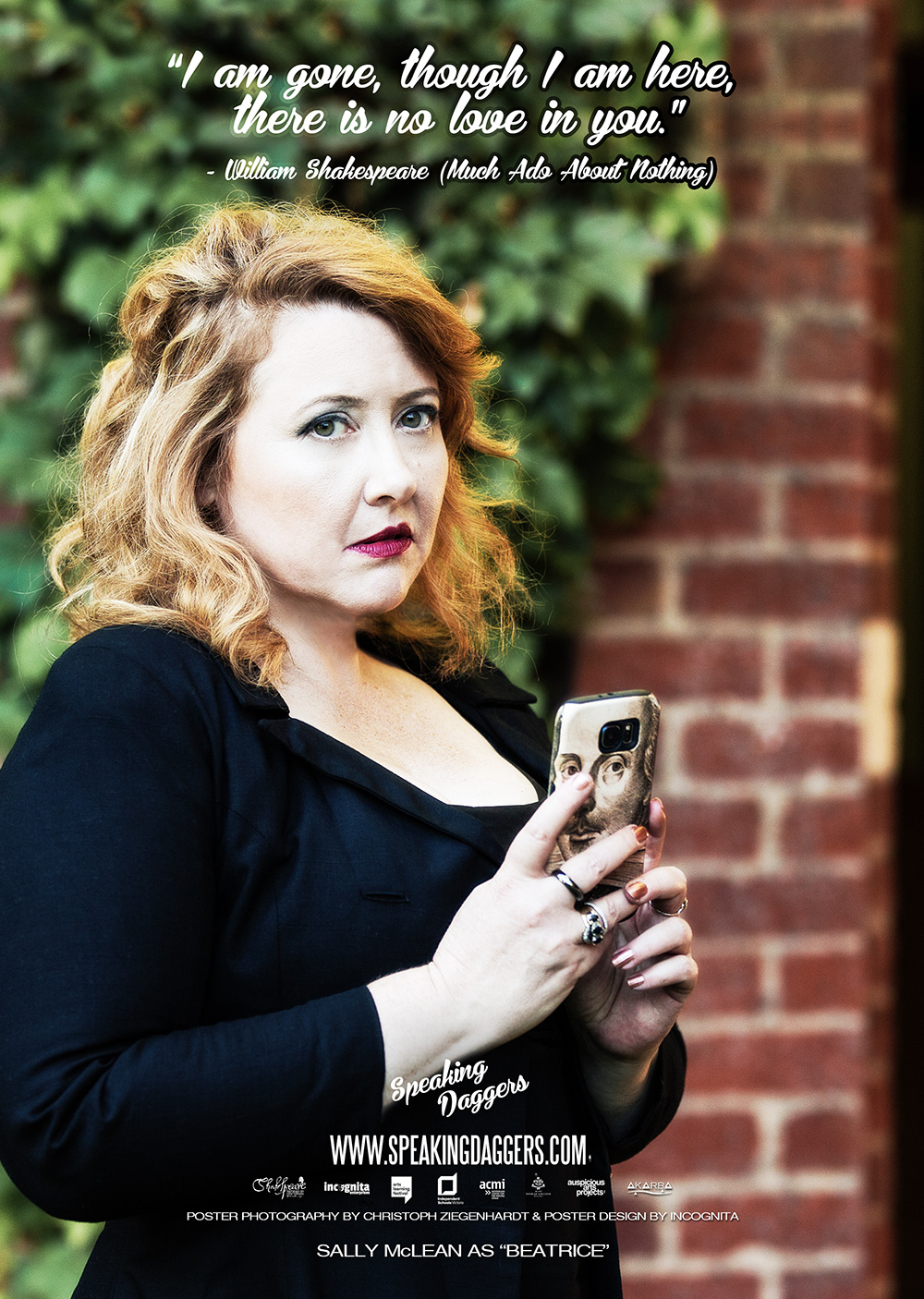
I likely wouldn’t have found the confidence to audition and attend Drama School in the UK (which involved not only reading, but learning a Shakespeare piece). I wouldn’t have begun my Masters In drama and education. I wouldn’t have become a playwright and screenwriter. I wouldn’t have become a Literary Editor. Or Researcher for the BBC. I wouldn’t have created my web series, Shakespeare Republic, which, in turn, is helping students, both here and overseas access some of the greatest writing we have available in the English language. And I certainly wouldn’t be standing here today, speaking to you.
So how do we keep enabling creativity in the next generation – the creativity we are going to most certainly need going forward into the future?
We stop denigrating the arts as a society. We stop saying that the arts are not a valid choice. We stop letting others say that the arts are not important. We truly value what the arts bring to all areas of society. To all walks of life. To all people.
And we nurture the creativity within ourselves as adults. We celebrate that we have the ability to daydream, to imagine, to envision. That we enjoy cross-stitching, knitting, carpentry, writing, singing in the shower, acting in our local amateur theatre productions, dancing around the house when we think nobody is looking. We are designed to be creative and to express that creativity and the joy that comes with creating.
And finally, we can ensure that our teachers get more than one semester of arts-based training in their own education, to help them further understand the value and application of the arts as not just a supplement to other subjects, but also as a worthy enterprise in their own right.
And if we have any doubts about how this can be done – let’s look at Finland. They have proven that putting the arts front and centre in education improves not just general student well-being and attitudes towards the Arts, but also science, math and other academic scores in the final years of high school. Including the arts on the curriculum also produces much more well-rounded, well-adjusted human beings. And that is only ever a good thing – for everyone.
As Einstein said: ‘All religion, arts and science are branches of the same tree. All these aspirations are directed toward ennobling man’s life, lifting it from the sphere of mere physical existence and leading the individual towards freedom.’
So, ladies and gentlemen, in conclusion, the speaker for the affirmative would like to sum up by saying: The Arts – Who Needs Them?
Quite simply – all of us.
Like this post? Please share using the buttons on this page.
Subscribe to The Parents Website
